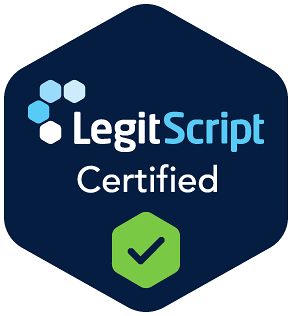
Comprehending ADHD Medications
Are Online Prescriptions For ADHD Medication Available?
Yes, ADHD medications can be prescribed after a thorough assessment by a board-certified provider.
FasTreat connects patients with local providers who can help determine the personalised treatment needed for effective ADHD management.
FasTreat connects patients with local providers who can help determine the personalised treatment needed for effective ADHD management.
Who Is Qualified To Prescribe Medications For ADHD?
Medications for adults with ADHD in Canada can only be prescribed by licensed healthcare providers, including nurse practitioners, neurologists, and psychiatrists.
Depending on provincial regulations and Health Canada guidelines, these medications can be prescribed either virtually or in person.
Depending on provincial regulations and Health Canada guidelines, these medications can be prescribed either virtually or in person.
Using Medication To Manage Adult ADHD Symptoms
There is no universal treatment method for ADHD. Studies show that appropriate medications can effectively manage ADHD symptoms in adults, with pharmacological approaches often being the first line of treatment. The benefits of these medications include their rapid onset of action and their reputation for safety, with few complications reported.
Numerous studies indicate that the most effective treatment for ADHD combines medication with behavior modification strategies. Regular consultations with a medication provider can significantly enhance treatment outcomes. The benefits of medication include a rapid onset of action and effectiveness in managing symptoms, especially when paired with consistent behavior modification techniques.
In FasTreat integrated treatment model, each clinical interaction provides patients with the opportunity to give feedback to their providers about both the positive and negative aspects of their treatment. Improvements can be evaluated using various rating scales or through subjective assessments. While side effects from stimulant medications are infrequently severe, they should be monitored closely, and adjustments may be required if any issues occur.
Numerous studies indicate that the most effective treatment for ADHD combines medication with behavior modification strategies. Regular consultations with a medication provider can significantly enhance treatment outcomes. The benefits of medication include a rapid onset of action and effectiveness in managing symptoms, especially when paired with consistent behavior modification techniques.
In FasTreat integrated treatment model, each clinical interaction provides patients with the opportunity to give feedback to their providers about both the positive and negative aspects of their treatment. Improvements can be evaluated using various rating scales or through subjective assessments. While side effects from stimulant medications are infrequently severe, they should be monitored closely, and adjustments may be required if any issues occur.


What Side Effects Could Be Expected?
In general, the side effects and risks associated with ADHD medications are minimal when weighed against the benefits of effective management, which can empower individuals to make progress in their lives. FasTreat's ongoing care includes real-time messaging with providers, allowing for timely reporting of any side effects. If messaging does not meet the needs, follow-up appointments can be scheduled to discuss adjustments to dosage or medication—follow-ups are only $69.
The side effects of non-stimulant medications can vary based on the specific medication used, making it important to consult a healthcare provider to understand any potential risks. These side effects are often similar to those of stimulant medications and may include dry mouth, decreased appetite, weight loss, headaches, insomnia, irritability, and dizziness.
The side effects of non-stimulant medications can vary based on the specific medication used, making it important to consult a healthcare provider to understand any potential risks. These side effects are often similar to those of stimulant medications and may include dry mouth, decreased appetite, weight loss, headaches, insomnia, irritability, and dizziness.


